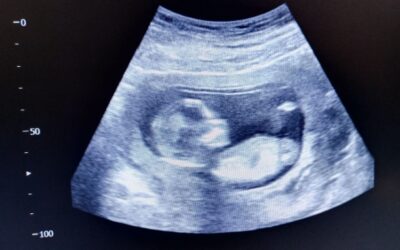By Terri Jo Neff |
Although two Yuma County women charged by the Arizona Attorney General’s Office with ballot fraud are scheduled to be back in court next month, two local election integrity watchdogs say the problem in their county runs much deeper, and it has garnered the attention of the FBI.
Last week Gary Garcia Snyder and David Lara revealed in a radio interview with Sergio Arellano that they utilized hidden cameras to record ballot harvesting incidents at two San Luis polling stations on Aug. 4, 2020, which was primary election day. The city of 33,000 is in the far southwest corner of Arizona on the Mexico border.
Among those seen on the video dropping off more than their one personal ballot were Guillermina Fuentes, a member of the Gadsden Elementary School District board in San Luis, and Alma Yadira Juarez. Both women have been indicted on a Class 6 felony of ballot abuse for allegedly collecting four ballots which were later processed and counted by the Yuma County Recorder.
Snyder and Lara, who are local businessmen, discussed the problem of fraudulent ballot harvesting with Arellano, who has testified at the Arizona State Senate about ballot harvesting in Southern Arizona and how voters can be taken advantage of, particularly in majority-minority areas.
Lara first wanted to clarify that the type of illegal ballot harvesting taking place in San Luis does not involve simply helping someone get their ballot to a polling station. Instead, it is much more insidious, he says.
What most people commonly think of as ballot harvesting involves a closed envelope with a ballot that had been voted by the voter. But the men say what is happening in some communities, particularly Latino and low-income neighborhoods, is the taking of someone’s blank ballot and signed early ballot affidavit envelope.
The ballot is then filled out and dropped off (aka harvested) without the voter’s input. Because the real voter signed the early ballot affidavit, there is no way for election officials to know someone other than the voter filled out the ballot.
“It’s done in such a manner that it’s so subtle and gradual that the community believes it’s the norm,” Lara explained. “They think that it’s acceptable and they think this is the way it’s done; this is the way you do things.”
Snyder said that among the videos he turned over to the FBI is one purportedly showing Juarez, 41, bringing multiple early ballots to a local San Luis polling station. The footage, he says, shows the early ballot affidavits were signed but the envelopes were not sealed. Fuentes, 65, is reportedly at the same table when the ballots are dropped off.
The women have been ordered to appear in Yuma County Superior Court for a July 1 case management conference. If they do not enter into a plea deal by that date then Judge Roger Nelson will set their cases for trial later this year.
According to Snyder, others in the San Luis area -including elected officials- have been fingerprinted as part of the attorney general’s investigation. He believes it is being done to compare fingerprint evidence obtained from ballots.
“Yeah, of course we’re a smaller demographic, less votes, less ballots but one ballots very important. It’s the integrity of our voting system,” Snyder told Arellano.
Ballot abuse can be done by local officials but also various staff members of non-profits which come into contact with residents, Lara explained.
“So what happens is this: you go to a non-profit, you know as a member of the community, and you ask for help,” he told Arellano. “It could be housing, it could be health, it could be whatever, filling out documents, you name it. When you walk in they will ask you, oh, by the way, are you registered to vote? Oh, well, no, I’m not. Is your family registered? No. Well, we can help you.”
After building trust with that staff member or the organization in general, the new voter is likely to seek help understanding the ballot. And that, says Lara, is when a new voter is told ‘well, don’t worry about it, just sign it and I’ll take care of it for you’ or they are instructed who to vote for.
“They’ve actually tricked the community in believing they’re doing the right thing, they’re voting, they’re participating, yet they’re not really informing the community that they’re being lied to, used, and manipulated,” Lara added. “San Luis is ground zero as far as voter fraud. That’s where it started in 1997. It has spread through the state and it was perfected in San Luis.”
Lara also noted how significant it can be for those living in smaller communities to preserve the status quo by what he called “the tricks of the trade.”
“Being a board member and especially if you have majority, if your party or your group have majority on the school board then you control each year the hires, new hires, rehires, contracts, fires,” he explained. “So what happens is if somebody wants a job — bring me your ballots, your neighbors’ ballots, your family’s. It becomes a web.”
He added that the same incentive presents itself for various city employees and those who control non-profits serving the area.
That prompted Lara and Snyder set out early on Primary Election Day 2020 to see what they could discover. They were ready shortly before 7 a.m. with Snyder hunkered into his vehicle with his camera at one of the polling stations. Lara left to keep an eye on the other polling station.
It was not long before Snyder had evidence of alleged criminal conduct.
“I pop in my iPad and put Netflix on so that [poll observers] think I’m just watching Netflix, but during that whole time I was recording any movement, any voters that would walk up to their booths,” Snyder recounted to Arellano. “And, yep, within 5 to 10 minutes after David left, the first crime was committed.”
Snyder later went to the other polling station.
“I found another criminal act,” he says, describing one incident in which an elected officials appeared to be “blocking” so another elected official could receive an unsealed ballot envelope.
Throughout the day Lara passed along Snyder’s videos to Yuma County Recorder Robyn Pouquette, who notified local Sheriff Leon Wilmot. It was not long until the FBI got involved, and then the attorney general’s election integrity unit.
Both men are hopeful many other people seen in the videos will be indicted. Attorney General Mark Brnovich’s office did not respond to a request from AZ Free News for comment on the status of the investigation.
In the meantime, a recall is underway in the San Luis community to remove two city council members and all three Gadsden school board members. Fuentes is one of the officials under recall; if she is convicted of a felony -either via a plea deal or found guilty at trial- she will be disqualified from holding public office.
The experience has not soured Snyder on Yuma County politics. The Republican has announced he is running in 2022 for State Senate against Lisa Otondo, a Democrat who has been in the legislature since 2013.








